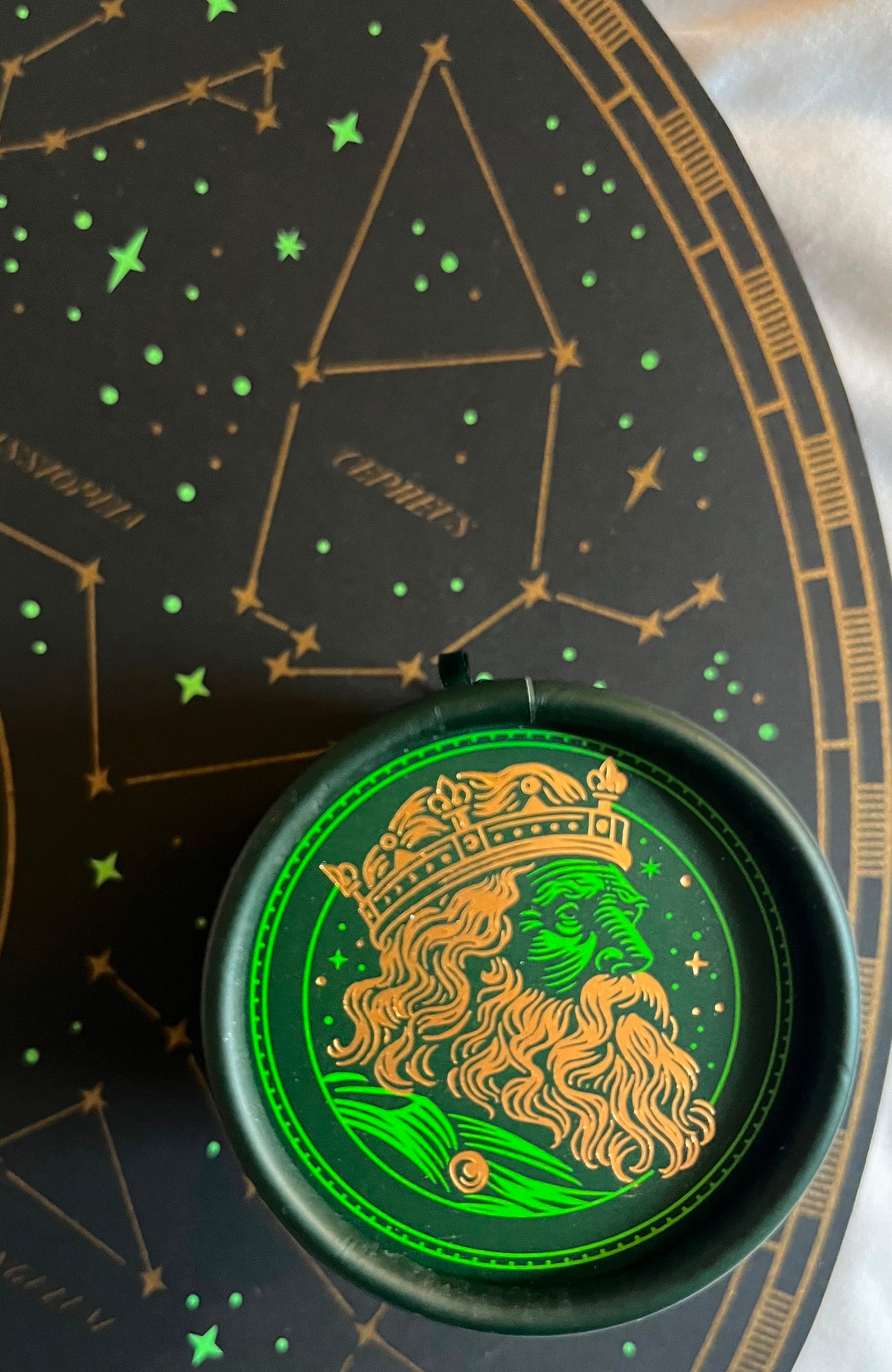
‘Good King Cepheus looked out
As he faced a crisis
When the gods were all worked up
Wanting sacrifices
‘Chain your daughter to a rock
Where the monster sees her
That’s the price of vanity
From Queen Cassiopeia…’
(To the tune of Good King Wenceslas)
Tonight we gaze up towards the north pole to a fainter set of stars which make the shape of a pentagon, or maybe a house. This pattern might be hard to see unless your skies are dark, but this constellation is Cepheus the king, the husband of the more well-known Cassiopeia, and he is located next to the queen of the sky. He is depicted on star maps as sitting on his throne, looking directly at us while the queen is usually seen in profile. Never setting in the north, he plays a part in the great heroic myth of Perseus (who will be covered soon), albeit in a more subdued part than his boastful wife or his doomed daughter Andromeda.
Cepheus was king of either Ethiopia or a region located in modern Palestine. After Cassiopeia’s bragging got her into very hot water, by proclaiming loudly and proudly that she, or Andromeda, was more beautiful than the sea nymphs, he consulted the oracle. This was because the gods sent a great sea monster to attack the kingdom after hearing her boasts. Cepheus asked the oracle how best to deal with this threat, and was not pleased with the answer. ‘Sacrifice your daughter Andromeda to the monster, and the kingdom will be safe’ was the oracle’s reply. And so with regret in his heart, he told his wife and daughter the oracle’s instruction. Andromeda was to be chained to a rock, and gobbled up. And so she waited, as the waves lashed, and the creature rose out of the water, jaws wide in anticipation of a meal, getting closer to the young girl as her chains rattled in fear and her parents looked on in utter horror…
To be continued!
I want to consider another avenue for King Cepheus’s story. I find it hard to grapple with the part of the myth where he went with the oracle’s dreadful proclamation, and didn’t fight to prevent his daughter from becoming a sea monster’s snack. Ok, maybe he didn’t have a choice, it is the classic dilemma: save your child or save the kingdom? But how about this: what if the oracle knew that Andromeda would be rescued (spoilers!), but didn’t say it outright? After all, oracles were supposed to foresee everything, but more often than not, gave answers in riddles. But maybe Cepheus was clever enough to suss out this hidden meaning, thus instilling a spark of hope within. Maybe he knew of a ‘happy ever after ending’?
Befitting a king, Cepheus contains a star named after a jewel. The Garnet Star, named for its deep red colour, is a huge, bloated supergiant star. A contender for a supernova in the future. It is also known as Errakis, which might be where the author Frank Herbert got the name of the desert planet, Arrakis, in the science fiction series Dune (see Draco for another star that might have inspired the name).
One of the most fascinating stories about Cepheus doesn’t concern ancient myth at all, but rather a brilliant astronomer who discovered a type of star that would revolutionise our understanding of just how big space is. Henrietta Leavitt, one of the ‘human computers’ working on astronomical data at Harvard in the 19th century, worked with observations of a type of star first discovered in the Cepheus constellation, called a Cepheid variable. These stars are found all across the universe, but they exhibit unusual behaviour-they pulse in and out regularly, changing brightness as they do so. Leavitt realised there was a precise relationship between the timing of star’s regular expansions and its brightness. Using this relationship, she realised it could be used to calculate the distances of stars, or star clusters containing Cepheids, and eventually entire galaxies. Thanks to her, we discovered how truly huge our universe is, and how it is expanding.

Prompt:
Thinking about the ‘house’ shape of Cepheus’s stars, and the idea of one’s home being one’s palace however humble or grand it is…consider your home. What is it like? A house, a flat, a bedsit, even a castle? How can you make it even more welcoming, to yourself, the others who might share it, and to guests? Maybe something like tidying, uncluttering and removing what you don’t need. It could be adding something to brighten your home, such as some lovely artworks, or vases of flowers, or some comfy cushions or blankets. And of course at this time of year, decorating it with whatever festive ornaments you like.
Also consider those who are homeless, at this cold time of year this problem is even more stark. Maybe think of donating to or volunteering for a charity that helps the homeless, or visiting the homeless in your neighbourhood, preparing them hot meals or buying them hot drinks, or donating unwanted blankets, jackets, coats and other warm clothing.



